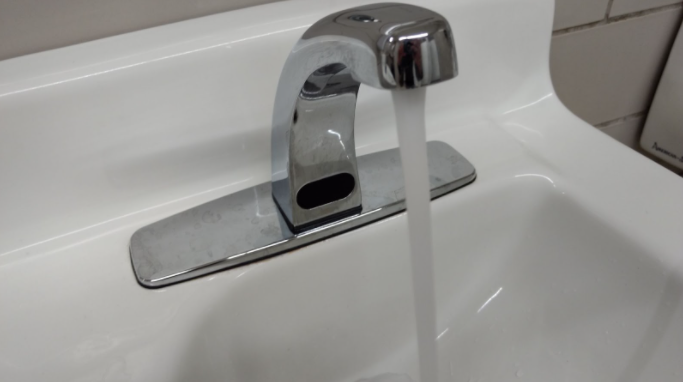Is water wet? Solon teachers give their opinion
November 30, 2021
For years, teenagers have been debating a seemingly-simple question: “Is water wet?” This international debate has included students at Solon High School (SHS), and their teachers have noticed and formed opinions of their own.
Merriam-Webster dictionary defines wet as “covered or soaked with water or another liquid, not dry.” This seems to leave the question open to interpretation. Solon’s teachers have joined in on the debate. SHS AP United States history teacher Jane Langston was confident in her belief and followed through with her reasoning.
“Of course [it’s wet],” Langston said. “How do you define wet? Something that isn’t dry.”
While some see the question as straightforward, others were less sure about the topic. For example, Robert Northrup, Langston’s fellow Social Studies teacher, was more ambivalent in his answer.
“I’m not sure there is an answer,” Northrup said. “There’s a lot of questions we can spend plenty of time pondering. I’m not sure any of them can move them forward as a society… If we figure out that water is, in fact, wet, do we gain anything from that?…It could depend on how we define wet,” Northrup said.
Meanwhile, SHS science teachers also decided to weigh in on the topic. Like Northrup, chemistry teacher Melissa Orfin questioned the validity of the debate.
“[The question] doesn’t even apply,” said Orfin. “To say something is wet is an adjective to describe it being affected by water. Water itself is the one causing the effect.”
Susan Kenzig, another chemistry teacher at SHS, is often asked by students her opinion on the question. She agreed with Northrup’s ambivalent stance.
“It’s a trick question,” Kenzig said. “Water, itself, apparently, can’t be wet. It’s how we feel when it’s on us.”
Kenzig’s initial response, however, was more straightforward.
“Yes,” she said. “Water’s wet. It makes us feel wet.”
However, she also questioned the scenario further to see the other side of the argument. She noted the scientific opinion on the debate.
“According to research, there is an angle that you can talk about water, where it is not wet,” Kenzig said. “It’s more of a scientific angle… rather than just an observation.”
SHS environmental sciences teacher Kaylee Rodriguez held a similar opinion to Kenzig. She included some of her expertise into her opinion.
“I would say, yes, water is wet… [But] if you asked if something is hydrophobic, such as wax paper… I would say no,” Rodriguez said.
SHS forensics teacher Matthew Kirk held the sole opinion in opposition to his science department colleagues. Kirk’s opinion sets him in contrast with Langston, Kenzig and Rodriguez.
“Water, itself, is not wet…it makes things wet,” Kirk said.
How words are defined in language is one of the many intricate things that unify us as a species and explain what it means to be human.
“It all comes down to definitions, which we all have to agree to,” Langston said.
This question opens itself up to more than just the properties of water. More philosophically, it leads us to wonder what things mean and why. As a teacher of world studies, Northrup continues to take the question as a bigger indication of the world.
“It comes back to the ultimate decision of what we decide is wet… or wherever we stand and our size in the world,” Northrup said.

